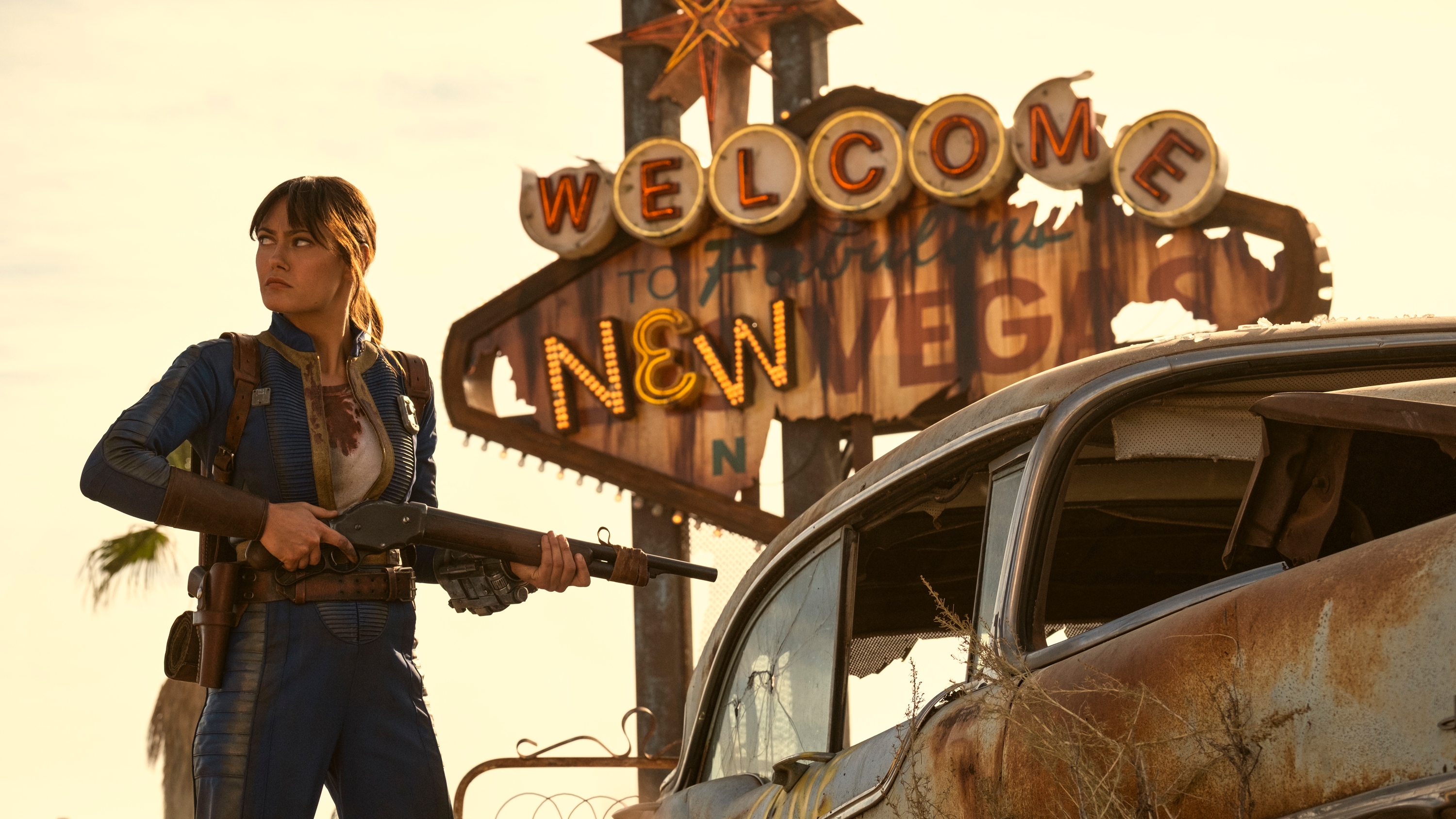The sexy KFC movie and the personification of brands
The personification of brands is a blast, until you realize what it's going out of its way to distract you from.

Earlier this month, as if answering 2020's call for some sort of unifying distraction of silliness and unexpected horniness, KFC revealed a trailer for its own erotic romance. The clip for a 15-minute 'mini-movie' title A Recipe for Seduction (get it?) will drop on Lifetime on Sunday December 13. Mario Lopez of Saved By the Bell fame plays a very familiar-looking brand mascot named Harland Sanders, a private chef who has seduced his client's daughter away from her fiancé with his secret spices. The internet, of course, erupted in a frenzy of hilarity, confusion, and questions about whether or not the Colonel was down to... you know.
This isn’t the first time that the marketing bastions at Kentucky Fried Chicken have tried to reinvent their central icon, a figure whose old-school white suit beard seems best suited to a plantation than a fast-food chain. Various celebrities have donned the costume for commercials, including country music legend Reba McEntire, actor Billy Zane, Jason Alexander from Seinfeld, and even the guy who played Gregor "The Mountain" Clegane on Game of Thrones. Hell, it’s not even the first time they’ve tried to sexualize the guy. KFC released a romance novella titled Tender Wings of Desire in 2017, advertising it as an ideal Mother's Day gift. Last year, they even made a (poorly reviewed) dating sim featuring Colonel Sanders, titled I Love You Colonel Sanders! A Finger Lickin’ Good Dating Simulator, where the Colonel was turned into a floppy-haired anime boy who wouldn't have looked out of place in Ouran High School Host Club. For people who like fried chicken and doing it, KFC has you covered.
In an age where every major brand has a chatty first-person Twitter account keeping up with all the latest memes and starting beef with their competition, it was all too inevitable that KFC’s personification of its logo would enter this territory. Indeed, this is basically a proud tradition for the company, and they’re something of a pioneer in this area. Harland Sanders was no Colonel, military or otherwise He was a salesman who worked in various fields such as gas stations before he and his mistress turned second wife Claudia came up with their fried chicken recipe and started selling it to various restaurants. Sanders committed fully to the Colonel image as the KFC brand grew. He dressed exclusively in his white suit and string tie whenever he went out in public, and he even bleached his mustache and goatee to match his white hair.
Sanders was the undeniable face of KFC to the public for decades. He appeared in various movies and TV shows, became beloved internationally, especially in Japan, and even appeared in a plethora or promotional tie-ins. You could play KFC video games, read KFC comics courtesy of DC, and see KFC splashed across NASCAR cars. Jack Massey, a businessman who invested in KFC, called Sanders "the greatest PR man I have ever known." He stood out in the crowd that included Ronald McDonald and the deeply unsettling Burger King mascot because he was a real man and certain values were inextricably attached to him.
That’s the model that modern advertising has spent a long time trying to replicate with equal or greater success. That sort of traditional marketing style, however, doesn’t really work anymore. Instead, consumers have curiously embraced capitalistic negging. Twitter accounts run by these corporate forces now troll one another. Wendy's has revealed herself to be a stone-cold b*tch, (while utilizing slave labor) and people love it. Popeye’s went to war with everyone, but especially Chick-fil-A, to prove the dominance of their new and wildly popular spicy chicken sandwich. Planters had a very strange year with their social media and advertising, culminating in them killing off their mascot Mr. Peanut in a manner that evoked the death of Superman in terms of emotional drama. The new normal of brand recognition relies on a strange mixture of hyper-specific humor, universal relatability, and hyper-humanizing of the abstract.
Personifying brands is a practice as old as advertising itself: make your product relatable and appealing in a way that goes beyond its basic qualities, and people will want to buy it. There's a reason the near-mythic cola war between Coca Cola and Pepsi relied so heavily on starry ad-campaigns and the insistence of coolness. KFC turning itself into a self-aware multi-media inside joke that’s equal parts wholesome and raunchy seems like a natural extension of both the company’s decades of advertising prowess and modern corporate strategizing. The Colonel is instantly recognizable the world over, and he’s nowhere near as petrifying as Ronald McDonald or the plastic-faced chaos demon heading Burger King. While strategies evolve, the brand endures, and turning him into something so over-the-top and bizarre that you just have to embrace the madness is appealing, whether or not you like fried chicken.
But corporations aren’t people, and “Wendy” starting beef on Twitter isn’t real. It feels condescending to even have to say that, but there is something undeniably insidious about the way we have so willingly swallowed the commercial line in this manner. Turning a multi-billion-dollar conglomerate into a cute singular figure is an unnervingly effective way of getting people to look the other way. Sure, Wendy’s is a sassy gal on Twitter, how much can it distract from the crushing reality of the company's refusal to join the Fair Food Program, thus continuing their support of the exploitative farmworker industry? How sexed-up does the Colonel need to be for people to stop questioning the poor welfare conditions among the company's suppliers, especially after KFC itself admitted that a third of its chickens suffer painful inflammation?
The latest updates, reviews and unmissable series to watch and more!
Everything is content now, and advertising on the small screen is a proud TV tradition. Soap operas came to be because Proctor and Gamble wanted to create daytime dramas that would appeal to housewives and provide them with bigger platforms to market their brands to an enraptured audience. A short and sexy KFC movie is basically the 2020, always online and pseudo-ironic version of Guiding Light. It remains to be seen if this particular trend will catch on – Ronald McDonald fights the Hamburgler in a Batman-esque mini-movie? – but the personified brands are here to stay, for better or worse. Just make sure you don’t get slammed by them on Twitter.
Kayleigh is a pop culture writer and critic based in Dundee, Scotland. Her work can be found on Pajiba, IGN, Uproxx, RogerEbert.com, SlashFilm, and WhatToWatch, among other places. She's also the creator of the newsletter The Gossip Reading Club.


